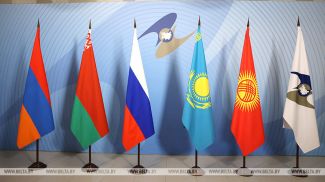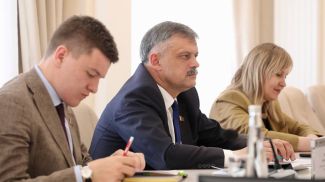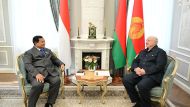MINSK, 14 May (BelTA) – More than 2,000 people have already took part in the study of herd immunity against COVID-19 in Belarus, Deputy Chief Physician of the National Center for Hygiene, Epidemiology and Public Health Irina Glinskaya said, BelTA has learned.
As of 12:00 on 14 May, 2,238 people had already come to blood transfusion stations to participate in the study, Irina Glinskaya noted. All in all, the study will involve 12,000 volunteers. All of them have already been recruited.
The study of herd immunity against COVID-19 kicked off in Belarus on 14 May. The first stage of the study will look at immunity after infection, Deputy Director of the National Research Center for Epidemiology and Microbiology Alina Dronina said. Belarus uses testing kits provided by Russia. The second stage will examine immunity after vaccination.
“The study will be conducted at the laboratory of vaccine preventable diseases of the National Research Center for Epidemiology and Microbiology that has a lot of experience in carrying out large-scale population studies to analyze immunity against measles, mumps, polio, and chickenpox. This way, the study will be run by the same people, which will enable us to get the most representative and comparable data,” Alina Dronina explained.
Blood transfusion stations get blood serum from blood collected from volunteers and send it the laboratory of the National Research Center for Epidemiology and Microbiology. The analysis will be carried out within 24 hours, the results will be uploaded into the database and emailed to the participants of the study.
The study is designed to obtain the information about the share of people with infection-acquired immunity against COVID-19 in every age group. Belarus will use the results to adjust, if needed, its COVID-19 response measures. “I believe, that it is more likely that Belarus will relax these measures, especially in some regions, rather than step them up,” Irina Glinskaya noted.
The results about their infection-acquired immunity should not influence people's decision to receive a COVID-19 vaccine, Irina Glinskaya stressed. “Regardless of their immunity against the coronavirus, people should get vaccinated,” she said.
The minimal interval between the first and second doses of the Sputnik V vaccine is 21 days, Irina Glinskaya pointed out. In some situations (for example, in case of an acute health problem, a flare-up of a chronic disease, a business trip), this interval might be longer. Russia's research shows that it is possible to develop good immunity against COVID-19, if the interval between the doses is up to 90 days. “As for the Chinese vaccine, the minimal interval should be 21-28 days. If, due to certain circumstances, this interval is longer, it is advisable to get the second shot as soon as possible,” Irina Glinskaya added.
Photos by Yegor Pavlushchik












